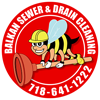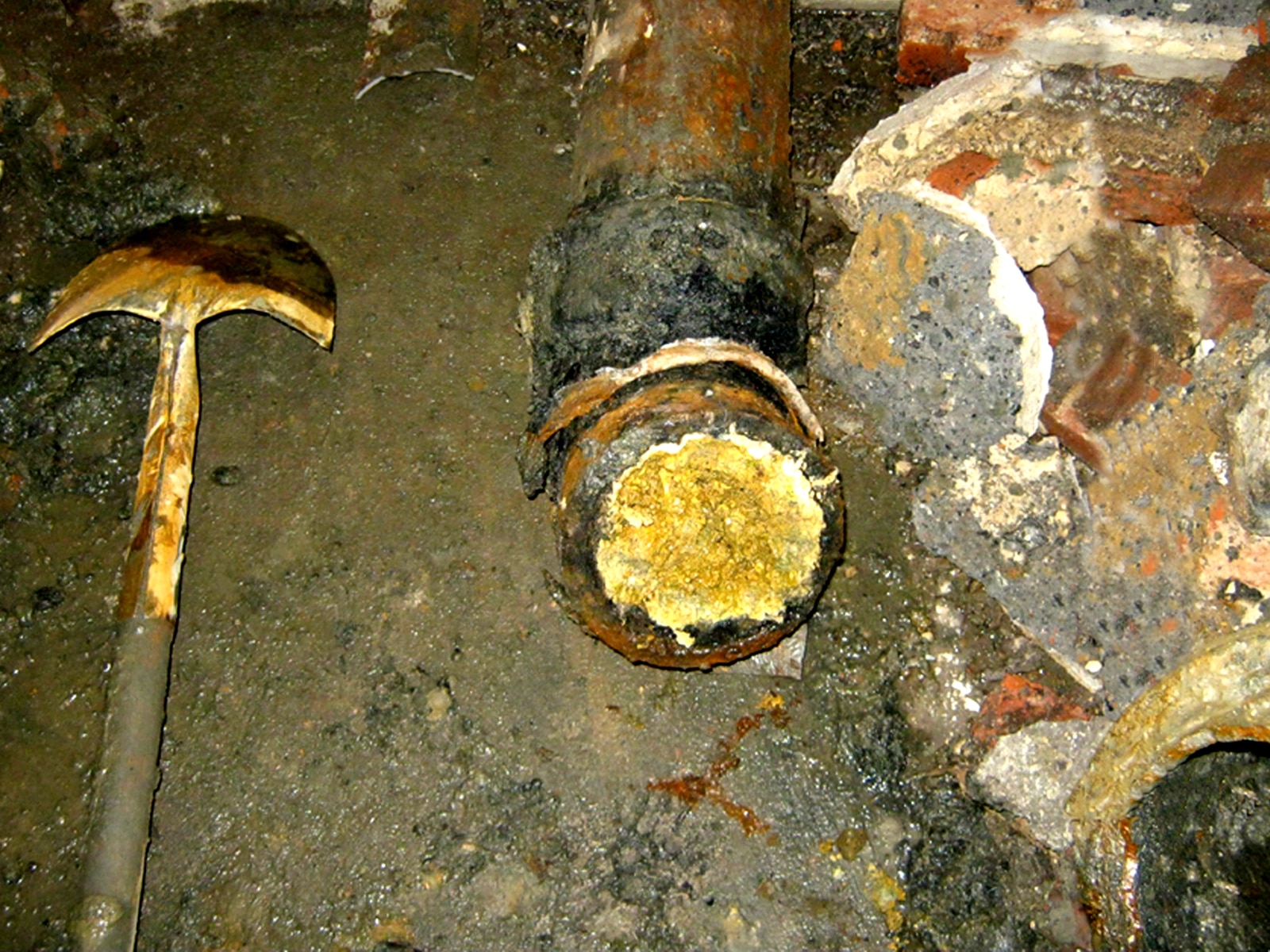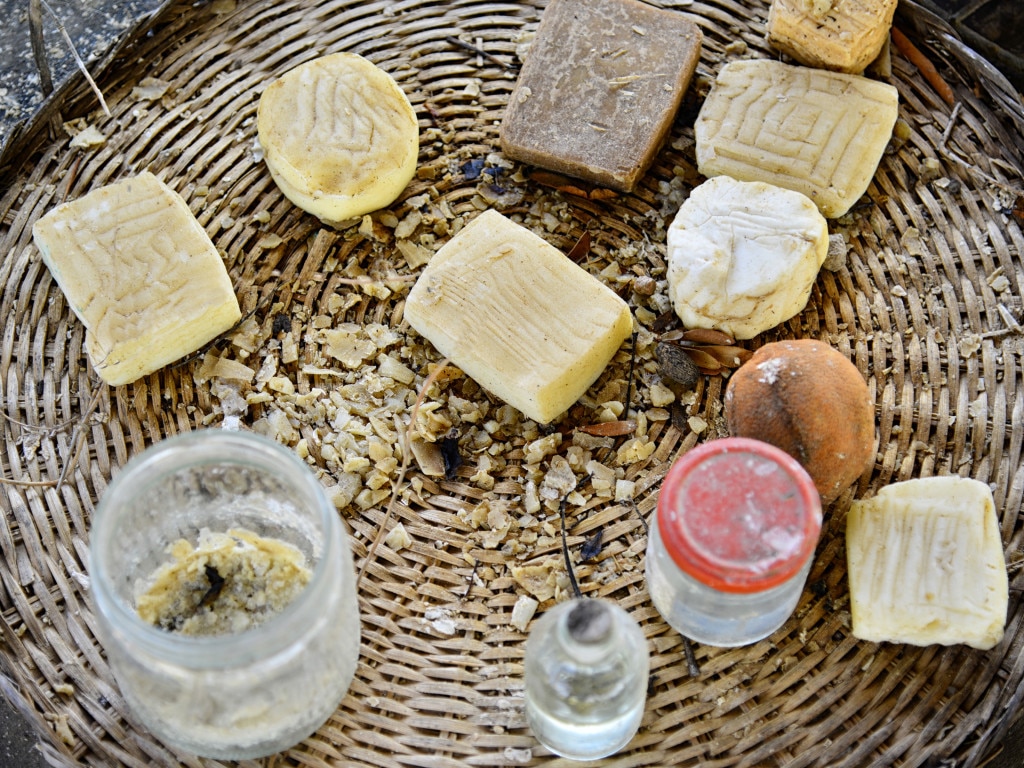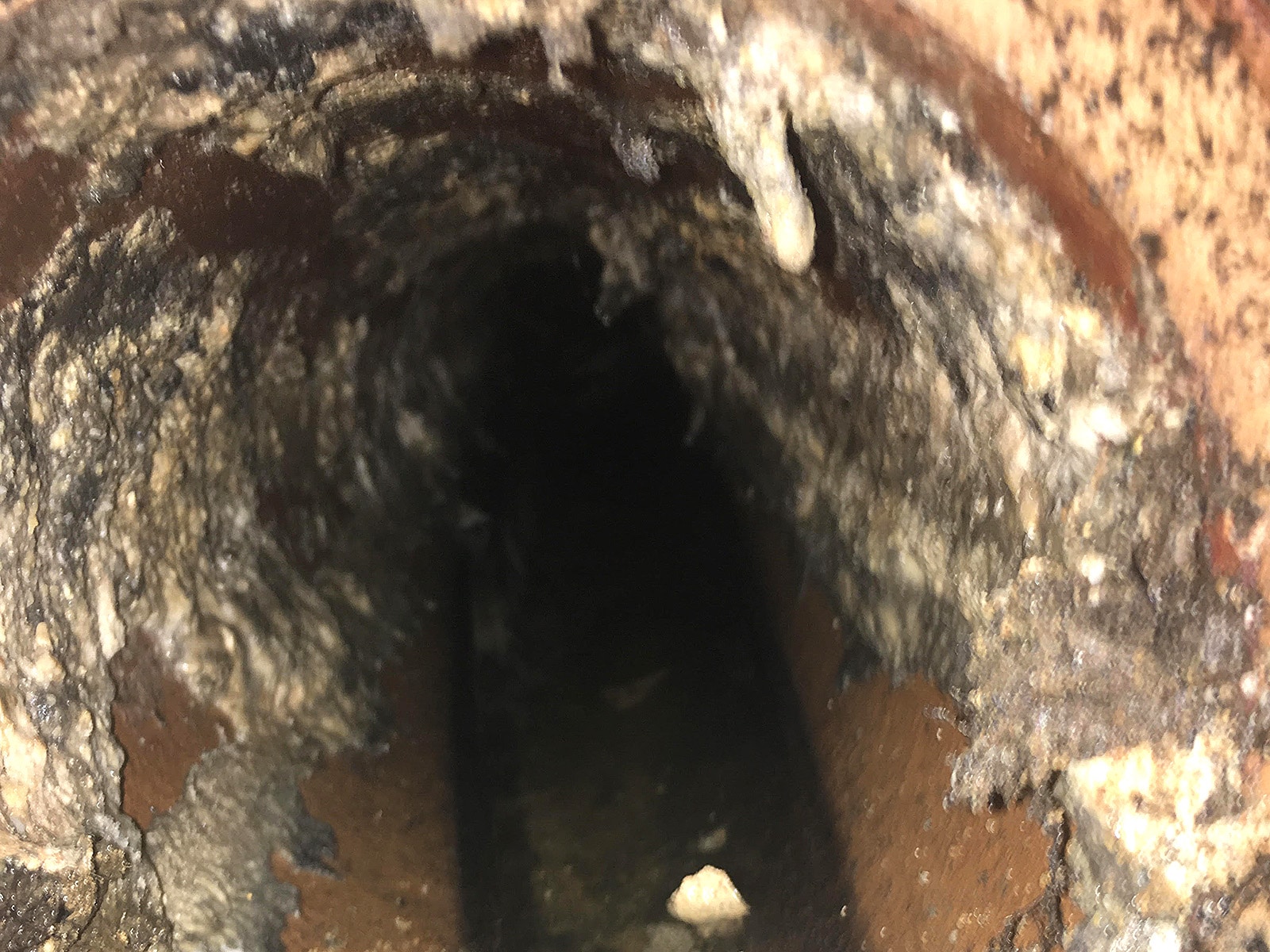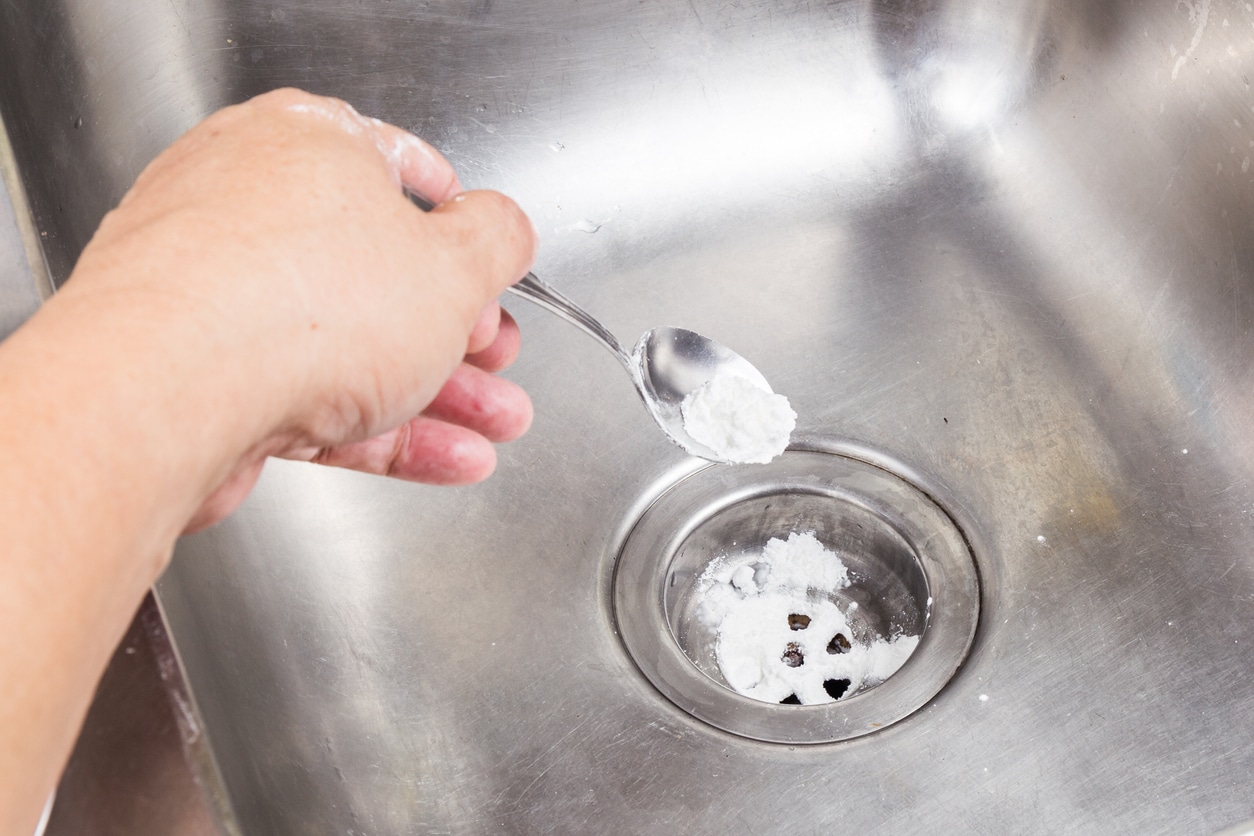Grease accumulation inside drain pipes is a major, yet surprisingly common plumbing problem. Dealing with a grease clogged drain can be a frustrating experience. When grease accumulates inside the drain pipe, it blocks the passage of water and leads to an overflow from the affected plumbing fixture.
When a clogged drain is caused by grease everything can get smelly and messy. Perhaps more importantly, things will get unhygienic in quite a hurry as well. Grease is perhaps the nastiest of drain issues, and the hardest to deal with.
Where does grease come from?
Grease, oil, and fat are common by-products of foods or cooking processes. Many other things can build an accumulation of grease inside drain pipes. Some of these items include meats, food scraps, dairy products, butter, coffee grinds, rice, eggshells, many soaps, and detergents a swell.
Anything else that comes from food or is used for cooking can be a potential cause of a grease clogged pipe. Even when you are a very cautious person, you may not notice the existence of grease in the drain pipe until overflowing happens.
Likewise, you may not be aware that a certain article contains grease; such as fat-based soaps. Most soaps are either animal-fat or vegetable-based. The problem is that grease doesn’t appear to be problematic until it overwhelms your drainage. Grease tends to build up over a prolonged period.
Most soaps are based on animal fat or vegetable fats. These types of soap can help to cause a grease clogged drain. Fat-free soaps are readily available. Fat-free soaps come in a variety of types, shapes, and sizes.
Where can grease accumulate?
The most easily clogged pipes are those directly connected to a kitchen sink, especially in the sink trap. FOGG (fat, oil, grease, and grit) is contained in water and everything may appear to flow easily down the sink, especially when you use warm water to flush it. Inside the pipe, warm water loses temperature and becomes cold. The water itself will flow, but the FOGG becomes solidified when exposed to cold air.
FOGG can either sink to the bottom of the pipe. But more likely, float on top of water, and slowly coat the top of the pipe. As you flush more FOGG into the sink, they accumulate to make an even bigger grease accumulation, then eventually a clog. Over time, the grease can completely block water passage, causing overflows without warning. In many cases, FOGG can also cause a trap stoppage in the belly of the trap.
Other causes of clogs and accumulation inside drain pipes
Drain pipe clogging is possibly caused by a mixture of calcium and fat as well. Human urine and corrosion from pipes produce calcium; when mixed with fats from any source, the formation of dense and fairly hard soap takes place. It means that any pipe located in any room in the house can get clogged by soap formulated by a mixture of calcium and fats on a day-to-day basis.
If you have persistent grease clogs, it can be due to a lack of proper pitch of your drain pipes. Grease clogs are not a normal occurrence. A lack of pitch, or “slope” of the pipe, allows grease to settle inside the pipe. A normally functioning drain system will take many years to formulate a grease problem.
The 5 Best Methods on How to Unclog a Grease Clogged Drain
A grease clogged drain is an alarming problem, and there are varying degrees of difficulty in clearing them out. Sometimes it is easy to restore everything to normal; sometimes that is not so. If you are addicted to washing food scraps down your drain, try to mix in hot water with dish soap when flushing down food scraps or cooking residue.
Dishwashing liquid does break up grease, but only to a small extent. These soaps are not meant to be effective for grease removal, but they can help to prevent grease from accumulating more. Better yet, break the habit of abusing your drain system. When a drain does get clogged from grease, here are the 5 main remedies:
1. The best and perhaps least used method: Remove and clean your drain trap
Many, if not most, grease stoppages occur in the belly of your U-shaped trap. All of your plumbing fixtures should have a trap underneath them, along with a main house house trap. As there is always a volume of water in the belly of your trap, it is a natural place for grease to accumulate. Cleaning or replacing a sink trap should take less than 30 minutes, frequently less time than toiling away with DIY or homemade remedies.
2. Caustic drain cleaners
A caustic cleaner is more effective in cleaning a grease clogged drain. A generous amount of caustic cleaner can penetrate a dense and hard accumulation of grease. To do this, pour the cleaner into a sink with standing water, and leave it for about an hour. As the cleaner slowly sinks down the drain, it washes away dense grease to the sewer.
In case the grease is stubborn enough, you may have to pour a larger amount of caustic cleaner and leave it overnight. When the morning arrives, and when you see a reduced amount of cleaner, make sure to pour a mixture of warm water and dishwasher soap.
3. Compressed air or a CO2 drain gun
Another remedy in some cases, is using compressed air (such as a CO2 drain gun). This is another means to push down the grease and can be a good idea as well. However, CO2 is also capable of blowing apart old or corroded plumbing parts. Therefore it is suggested to be used as a last resort, and by a skilled professional drain cleaner.
CO2 may be preferred to a chemical cleaning product. This is because of the corrosive property of caustic cleaner. Caustic cleaners are not advised for everyday flushing of clogs. Frequent usage will not only get rid of grease but also corrode away the drain pipes. Overly corroded pipe is prone to severe damages which potentially lead to more expensive repair. The corrosion can also clog the pipe in addition to grease.
In some cases it is easier to simply remove and clean out a sink trap than to use chemicals or a drain cleaning machine. Physically cleaning grease from out of a trap is also a more complete cleaning.
4. Two Homemade remedies
Commercial chemical-based cleaners are effective in tackling a grease clogged drain, but a homemade cleaner can be equally as good. The most common homemade cleaner is a mixture of hot water and vinegar in a 1:1 ratio. This mixture works in the same way as a caustic cleaner, but vinegar and water are non-toxic and less corrosive.
Adding boiling water will increase the temperature inside the clogged drain, and help to melt the clog. At the same time, vinegar removes all the grease sticking to the pipe walls. After some minutes, follow up the treatment by pouring more boiling water (without additional substance) into the sink to flush the remaining grease.
Yet another method that some folks swear by is using baking soda and vinegar to clear out drain stoppages. The success of using baking soda and vinegar varies depending on the severity of the clog, and the type of clog.
5. Hydro sewer jetting main sewer lines
For a more complete cleaning, using a powered drain auger in conjunction with sewer hydro jet equipment is sometimes advisable. You can rent them from a hardware store and start the cleaning process, but it is recommended to use a professional drain cleaner. If you are not sure about what you’re doing you may not be successful, or worse, injure yourself in the process. A grease clogged drain can produce a bad smell that lingers in your house for quite a while. You can neutralize the bad smell by pouring a mixture of hot water and a bleach solution into the sink.
In the case of a grease clogged house drain, or main sewer, a high-pressure water jet is the ideal solution. Using the proper nozzle and in the hands of a skilled professional, can provide a long-lasting solution. Simply using a standard sewer cleaning machine can result in pushing the snake back and forth past in the grease, without removing the grease at all.
How to avoid a grease clogged drain?
Prevention is the key to avoiding a grease clogged drain and all the struggles that follow the problem. When cooking or washing the dishes by hand, do not flush fats, oils, butter, egg shells, and any other greasy substances into the sink. If you have to clean greasy kitchen utensils and plates, you may want to soak them in a grease-dissolving cleaner before washing them.
Some important keys to remember:
• A grease clogged drain happens only when there is an accumulation of greasy substances; so do not pour fats, oils, grease, and grits down the sink.
• Pots, pans, and dishes must be wiped of solids before washing. Scraped materials must be disposed of in the trash.
• Install a garbage disposal under the sink to prevent a grease clogged drain.
Garbage disposals or grease traps are specifically designed to separate fats and greasy substances from water. Placed under the sink, it prevents possible clog-causing materials from going into the pipe. When installed and maintained properly, grease traps can capture large amounts of greasy substances.
Keep in mind that grease traps are not designed to handle solid materials such as food scraps. To make sure that the traps don’t catch solid objects you should also use sink strainers. If you follow all of these steps, yet still get stoppages, you may have a serious drain pipe issue that needs repair.
Sometimes you need a professional drain cleaner
There will be times when you need a professional to clean your grease clogged drain or attend to some other drain issue. If you need professional drain help, or simply expert advice, contact Balkan Drain Cleaning.
The Balkan family has been serving the NYC area for over 70 years. Our team is available 7 days a week, in addition to after hours as well. In the rare cases when there is structural damage to your drain or sewer pipe, you can also count on Balkan for expert sewer line repair work.
